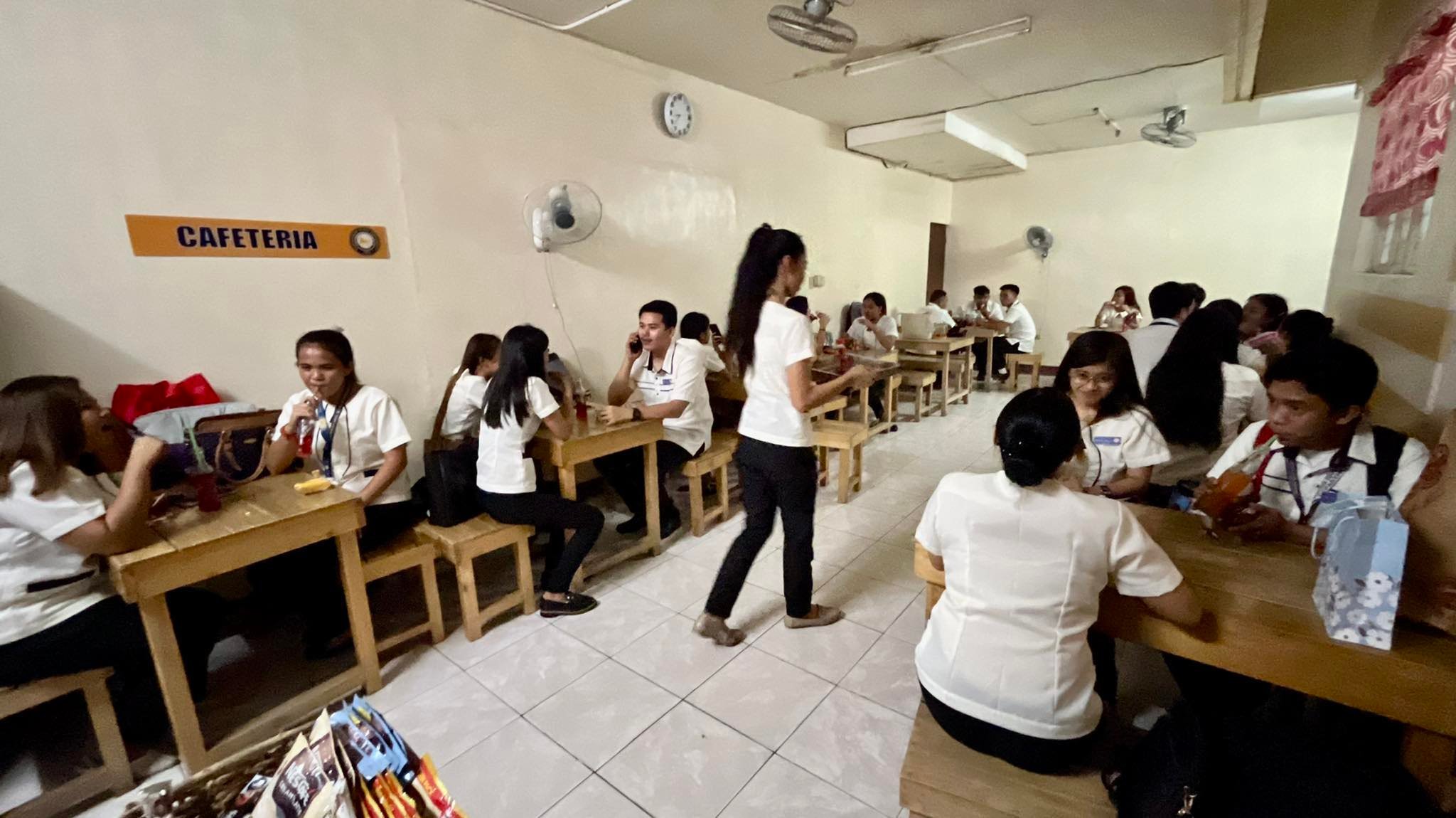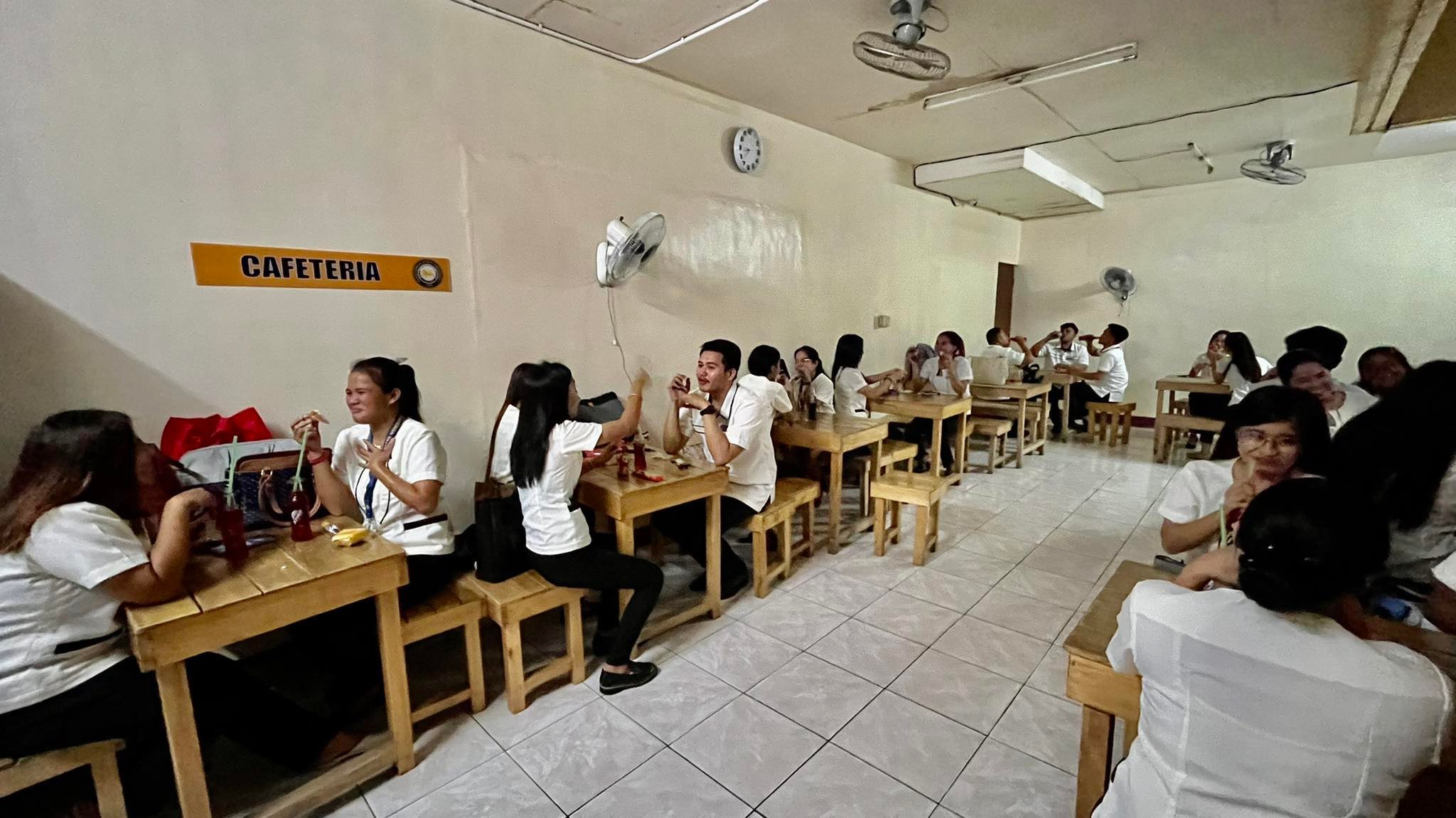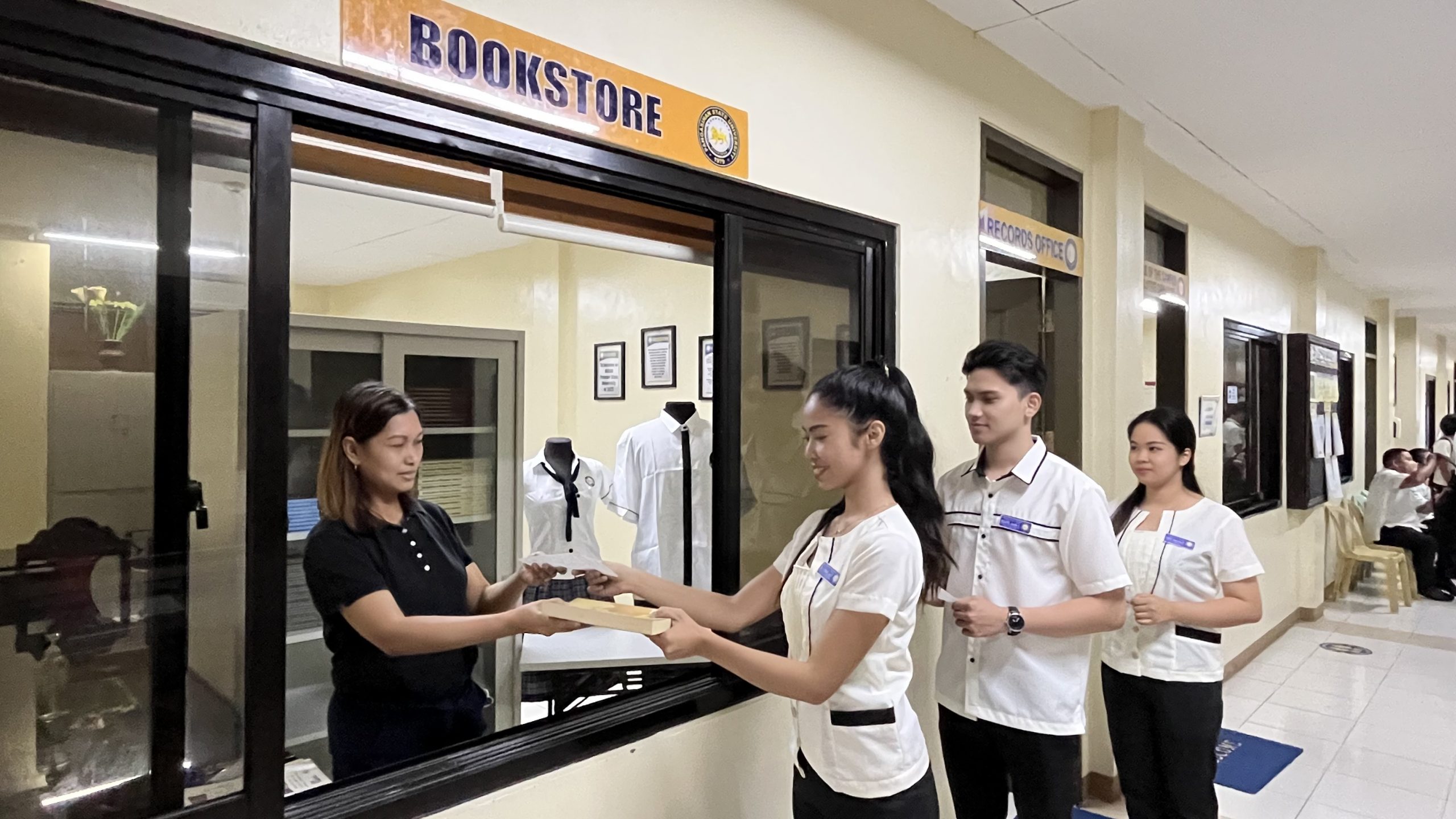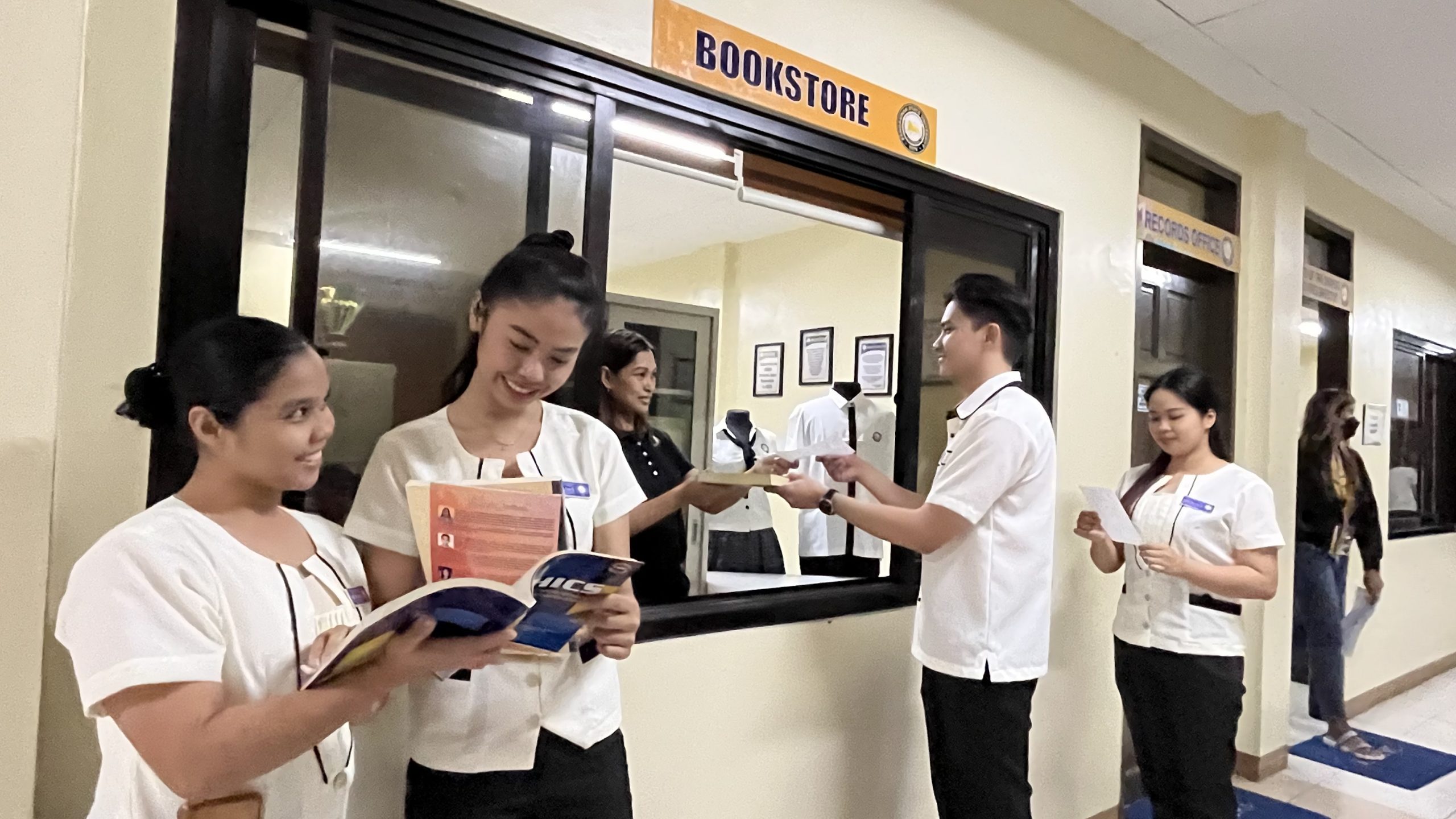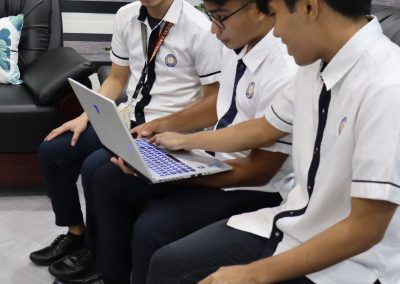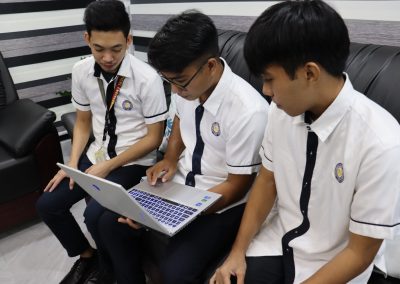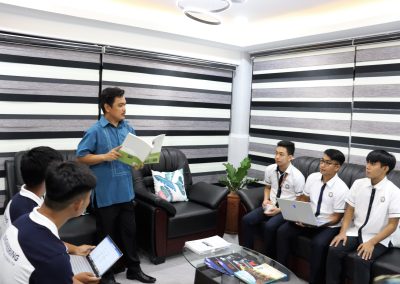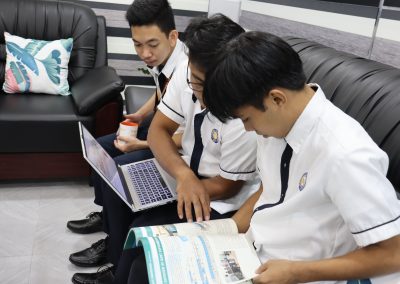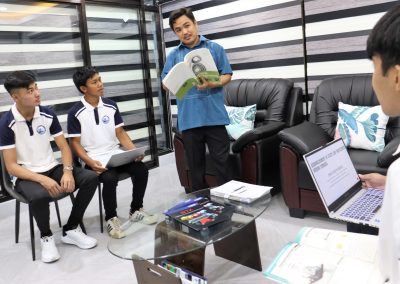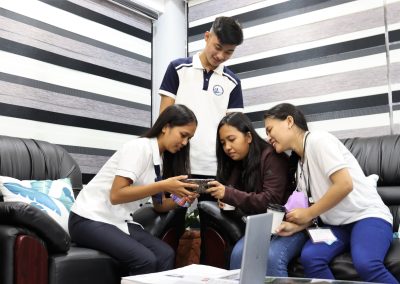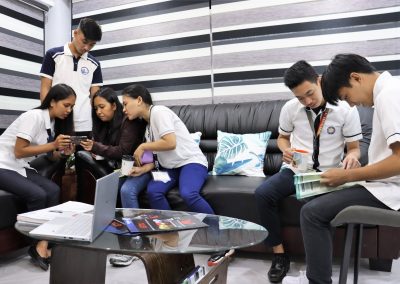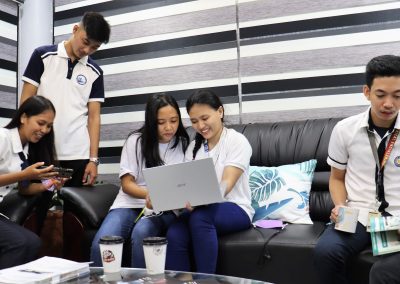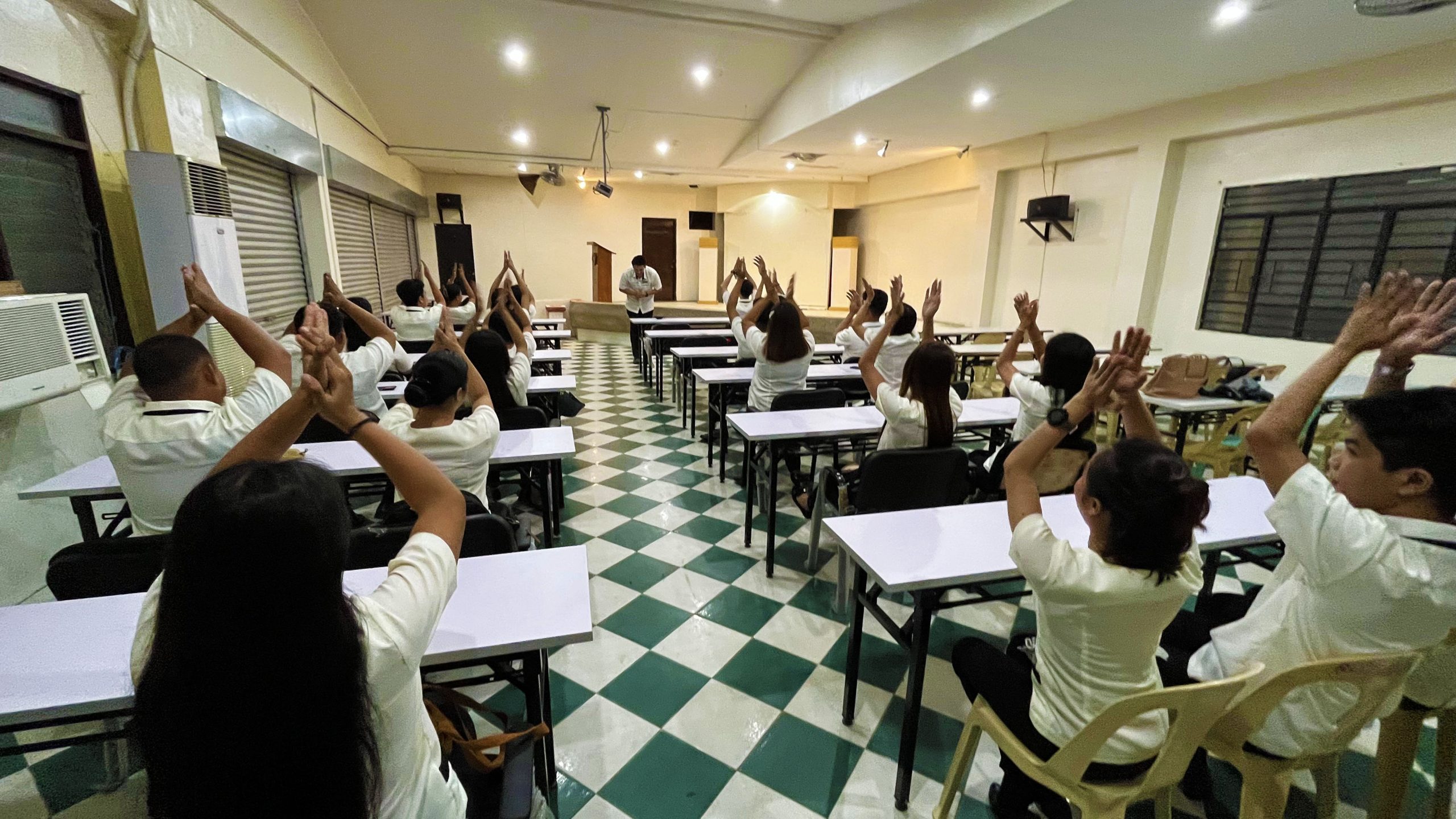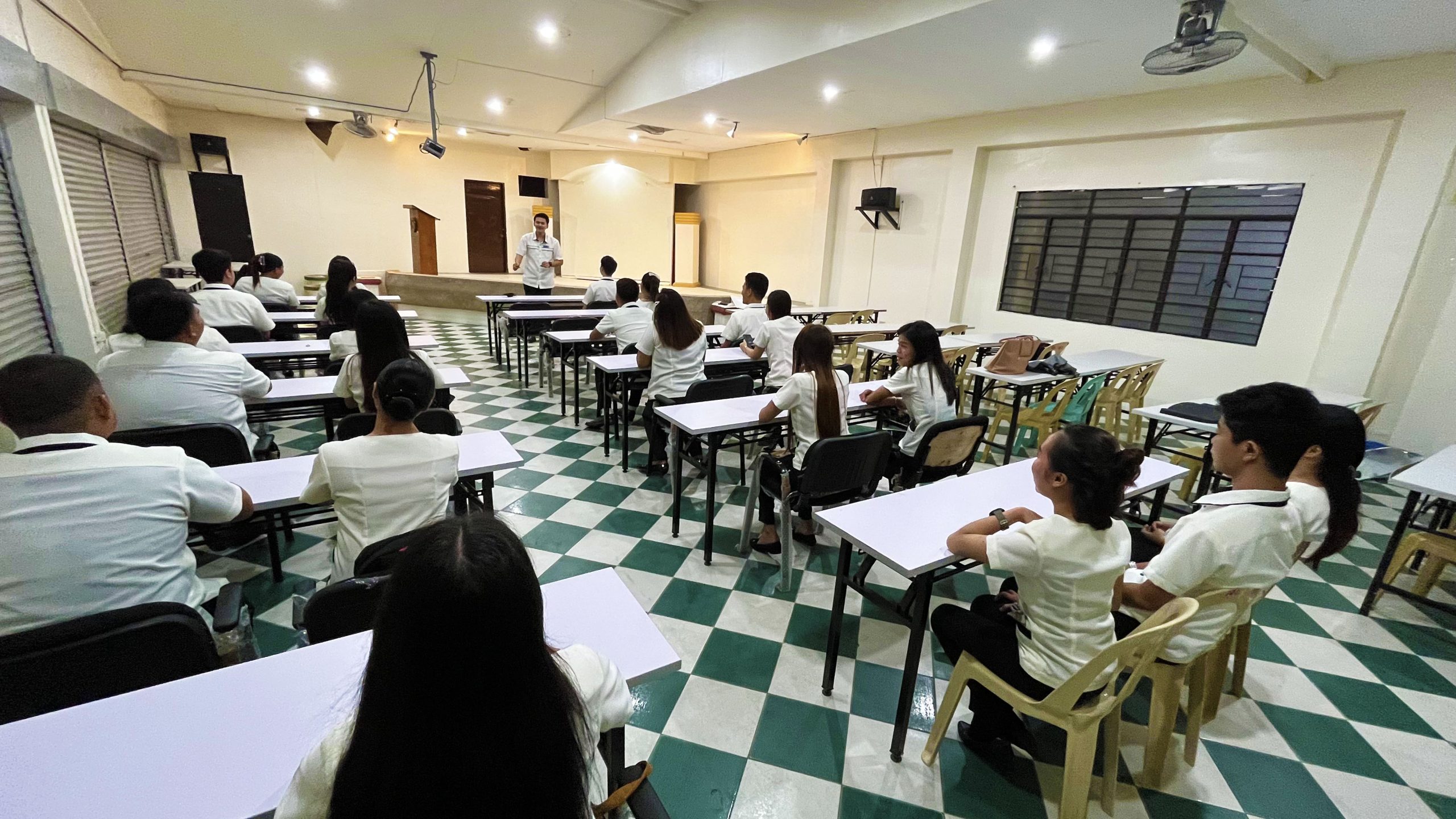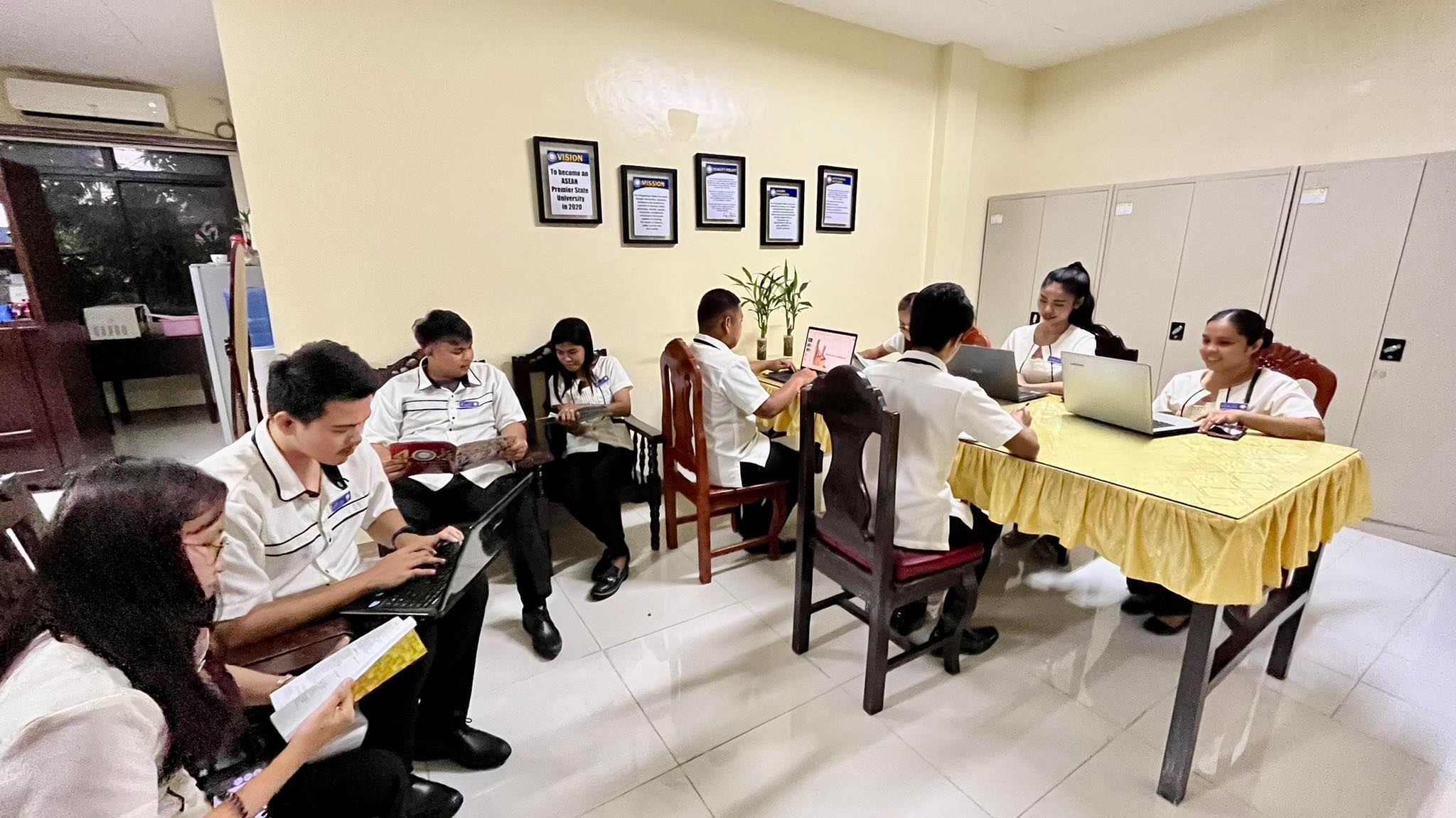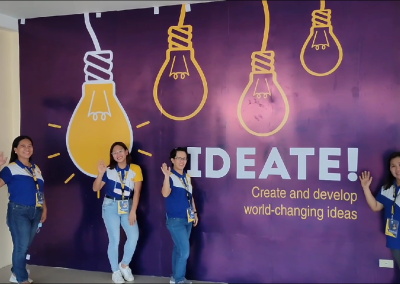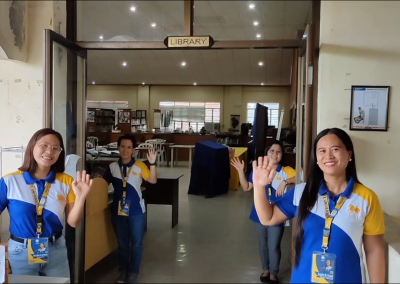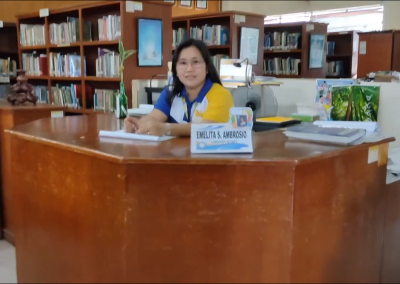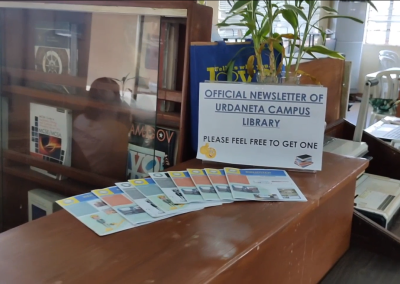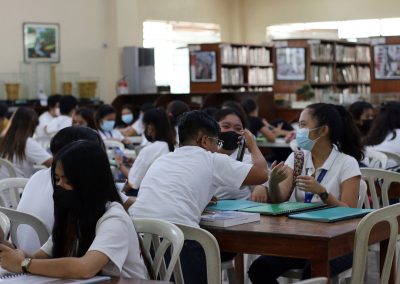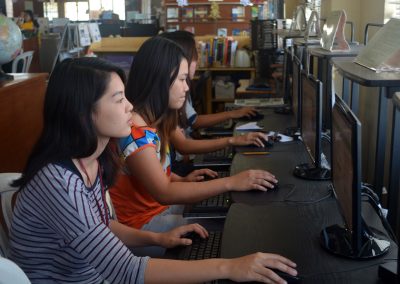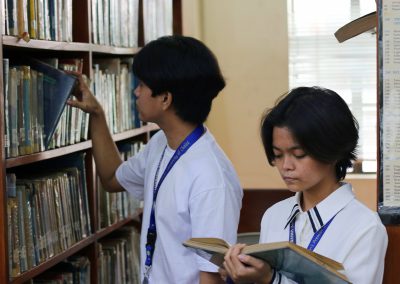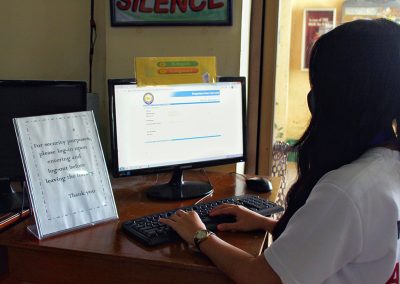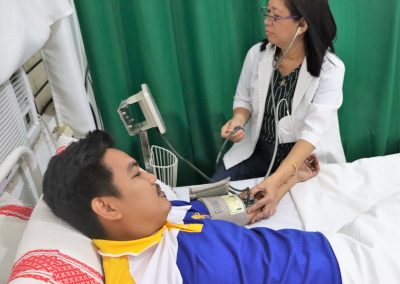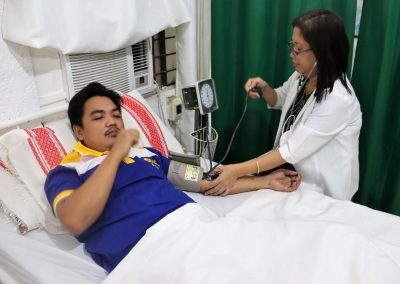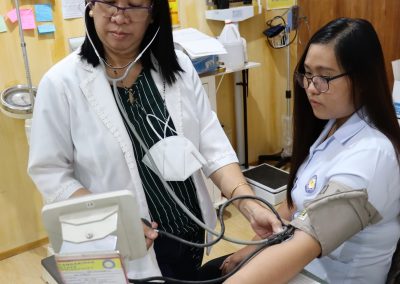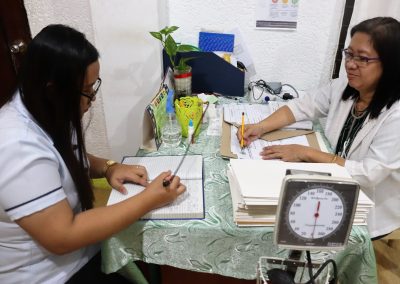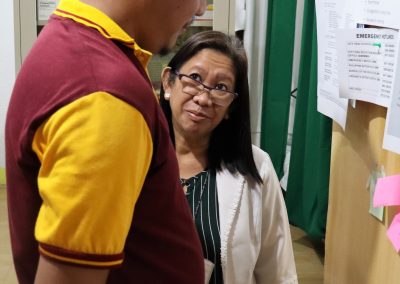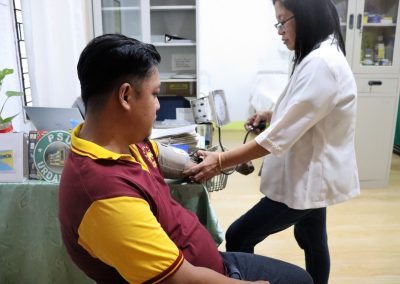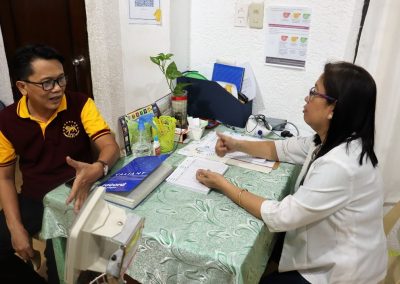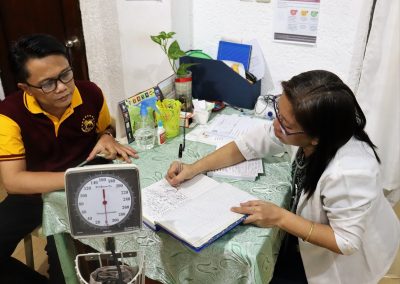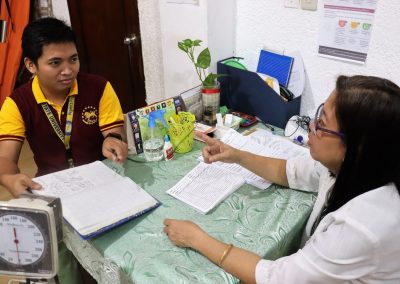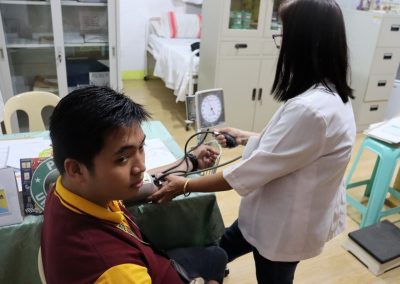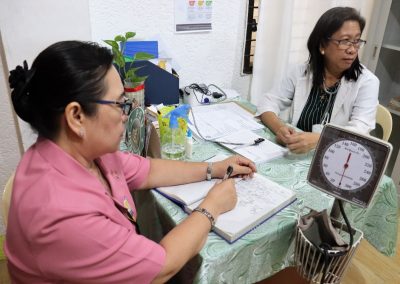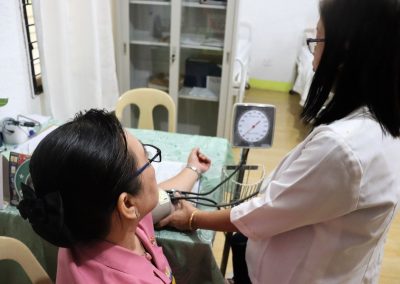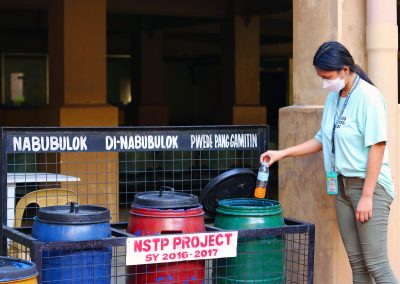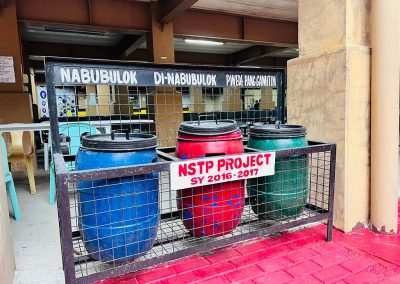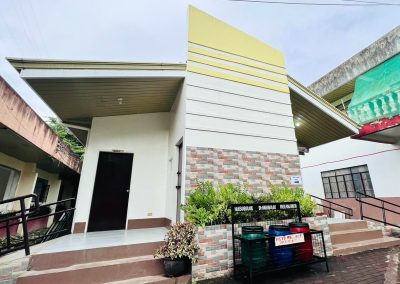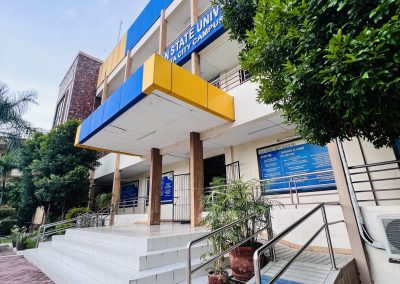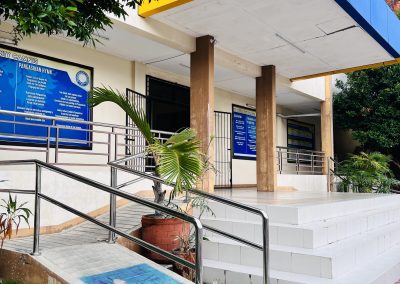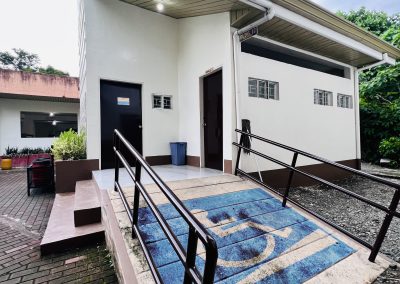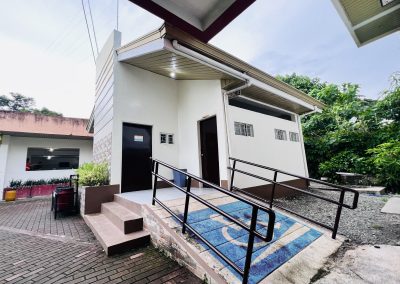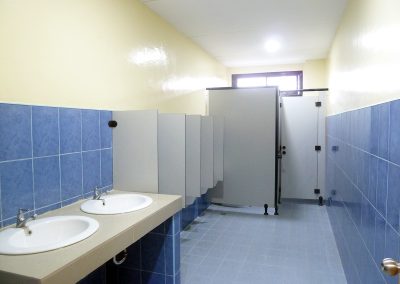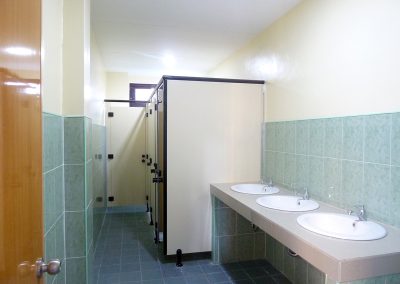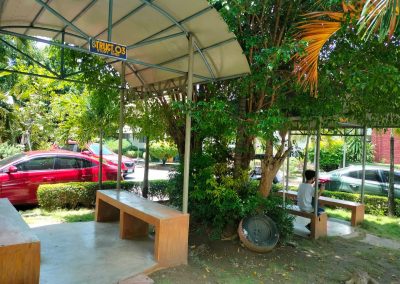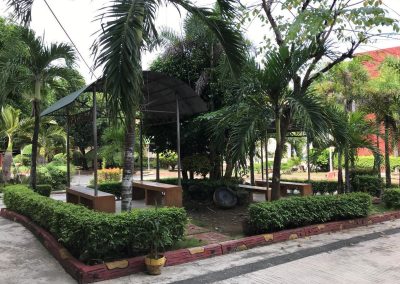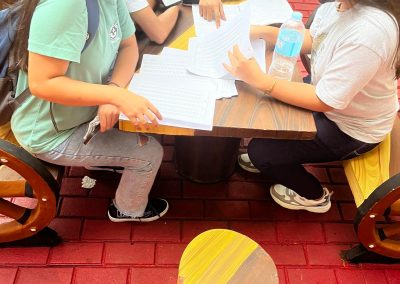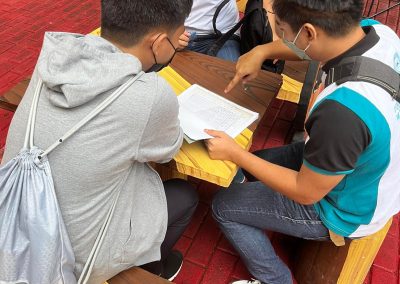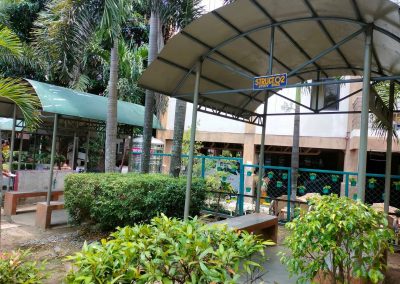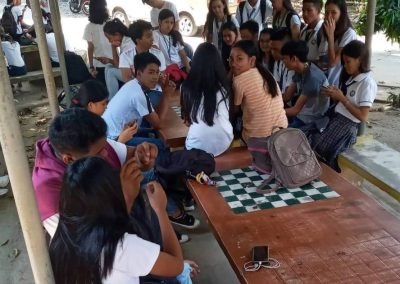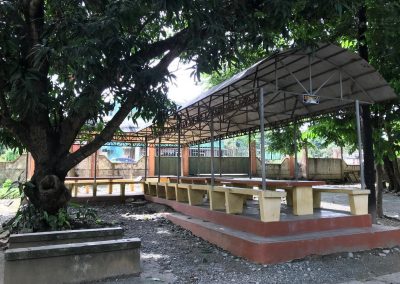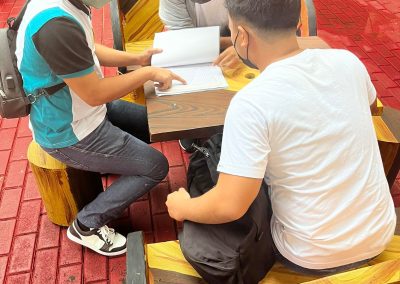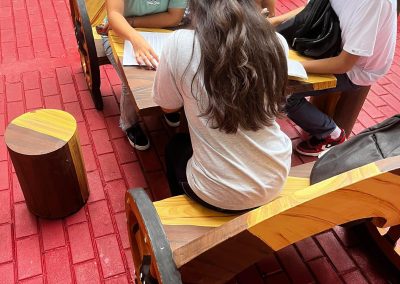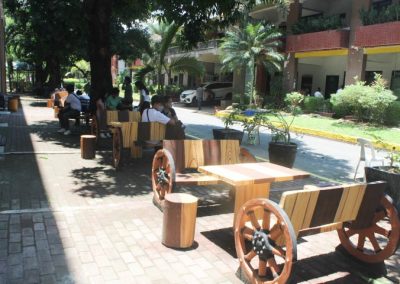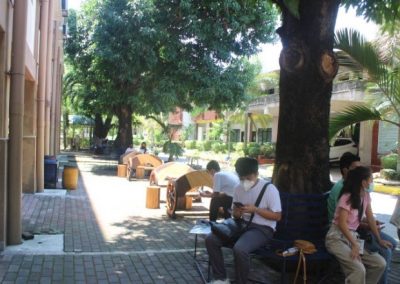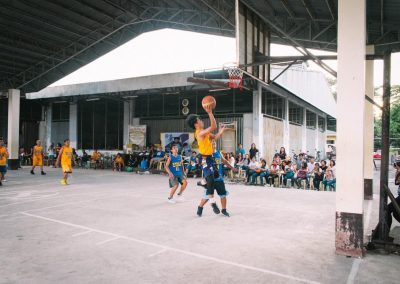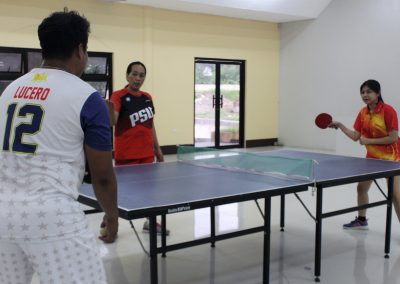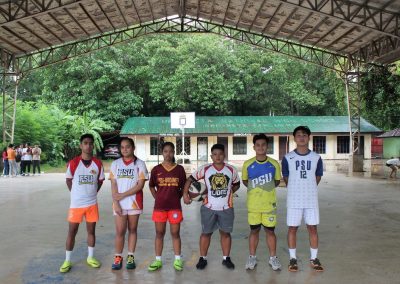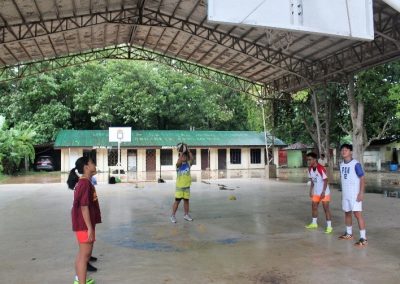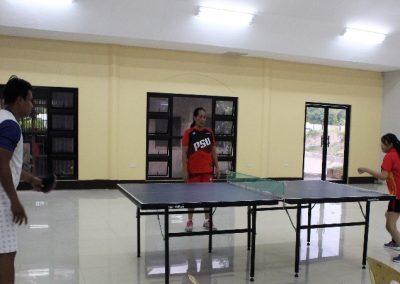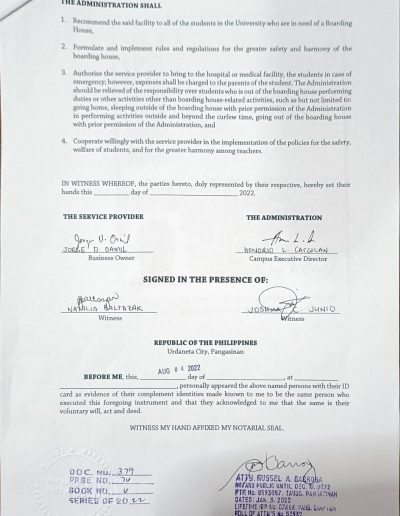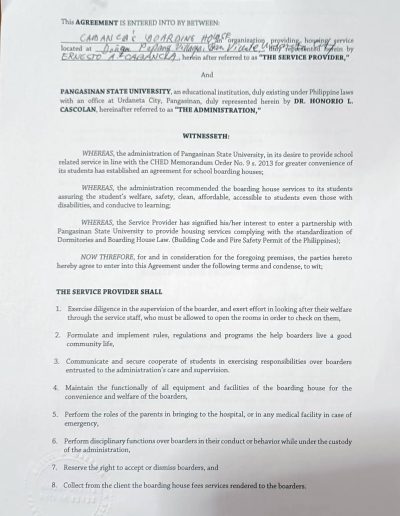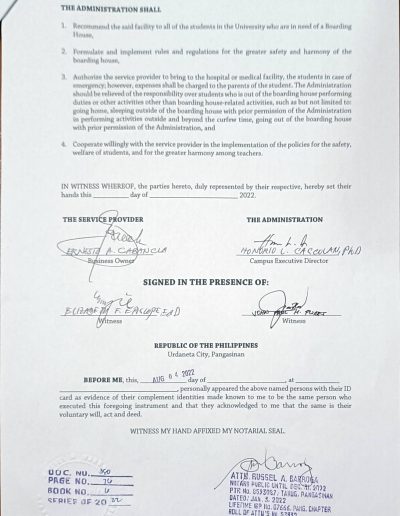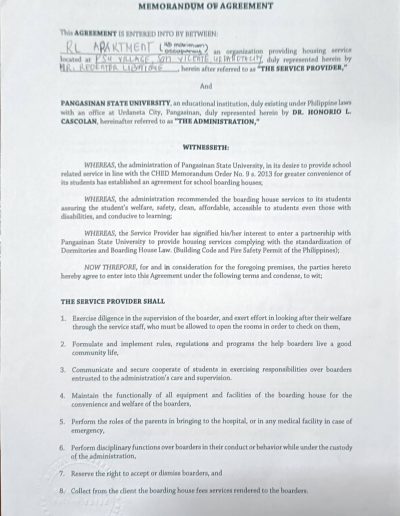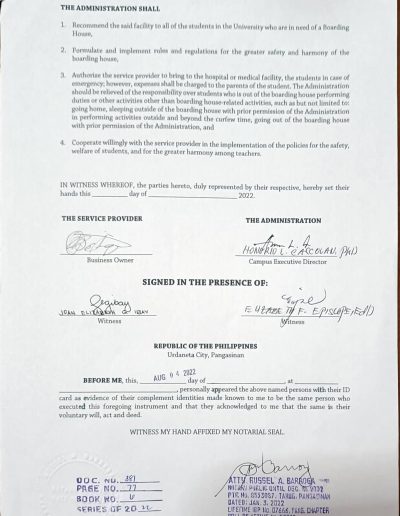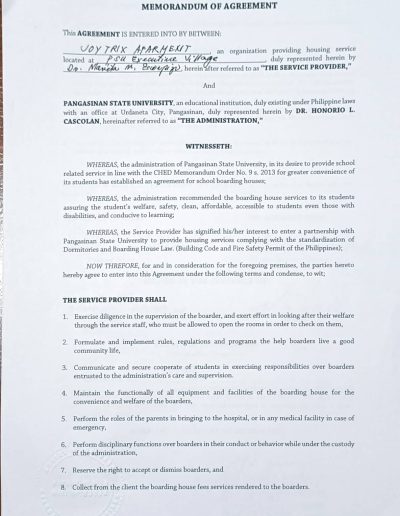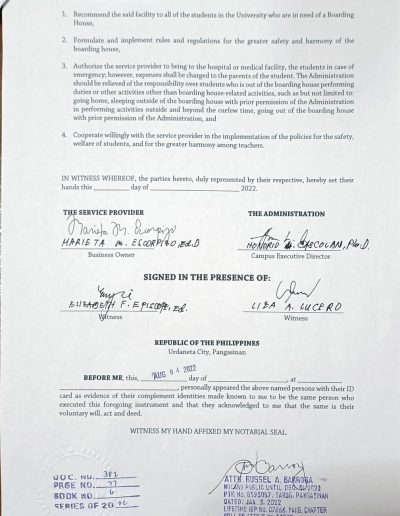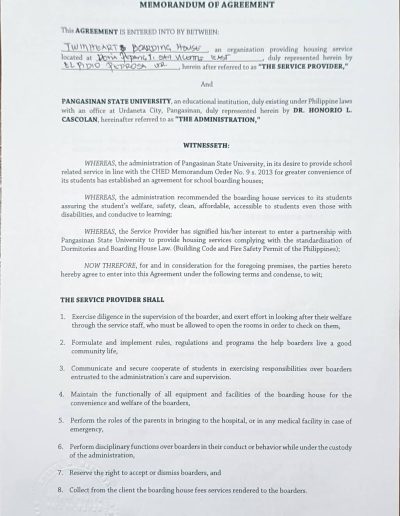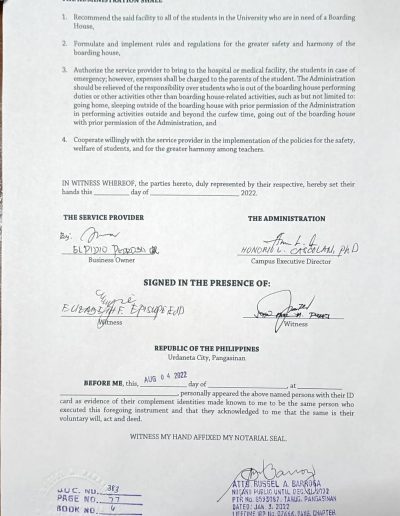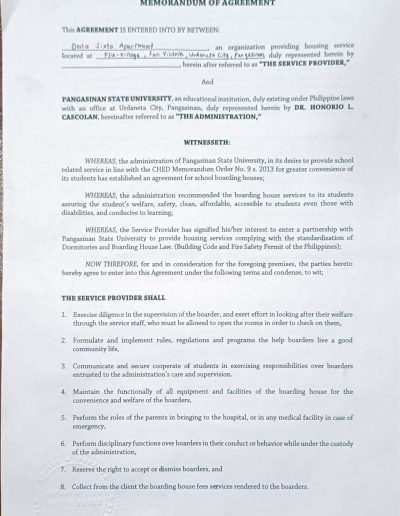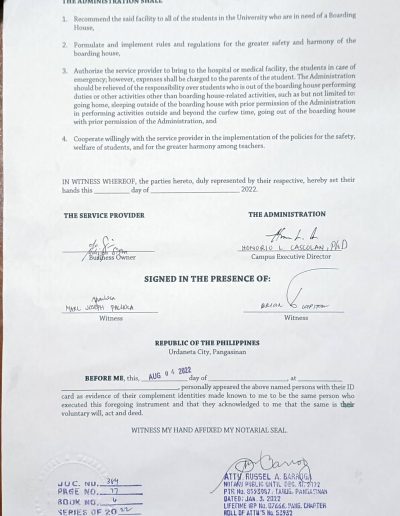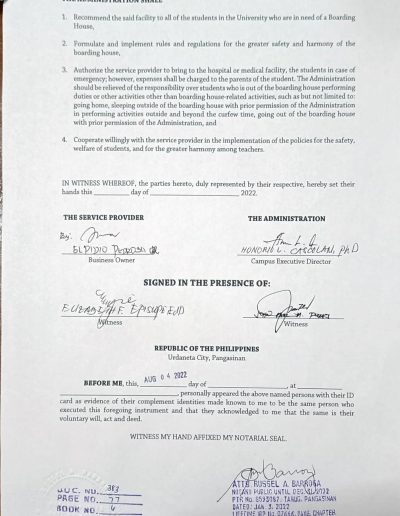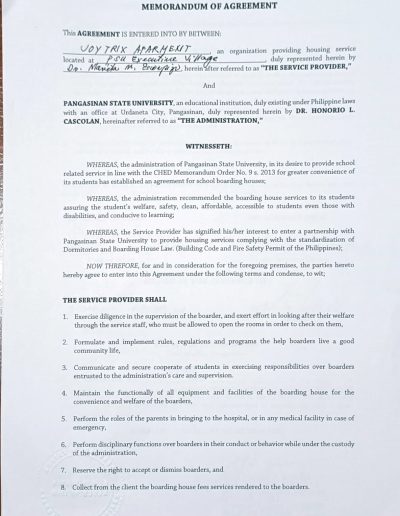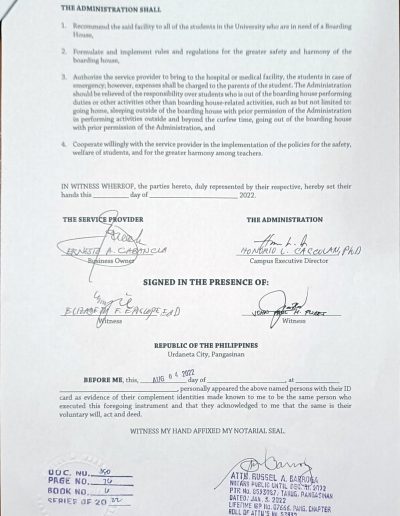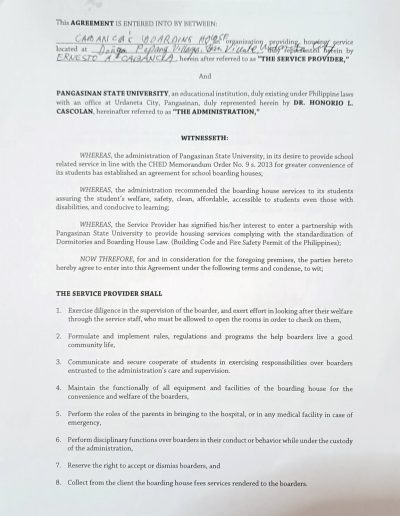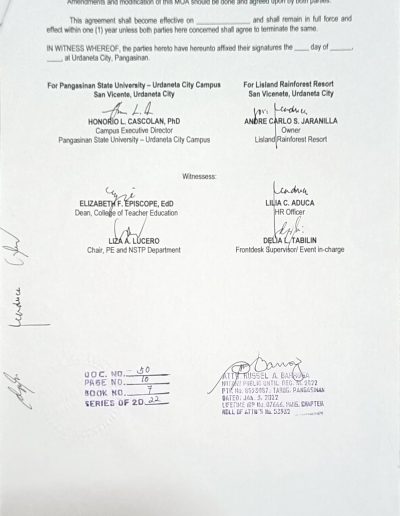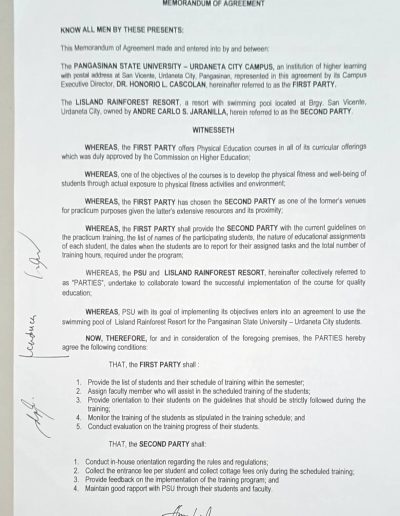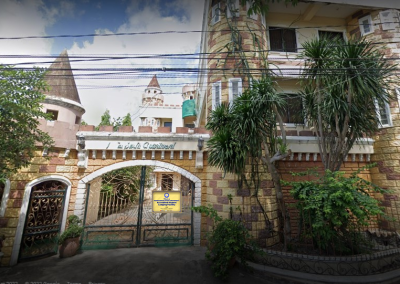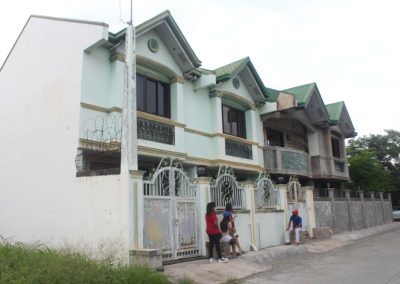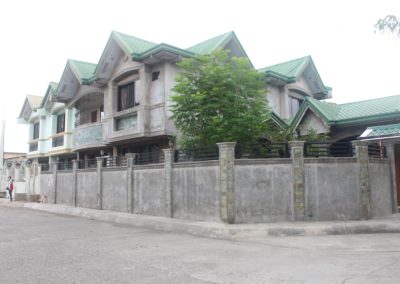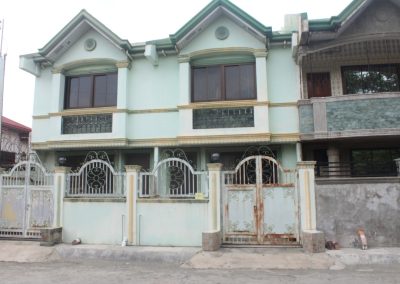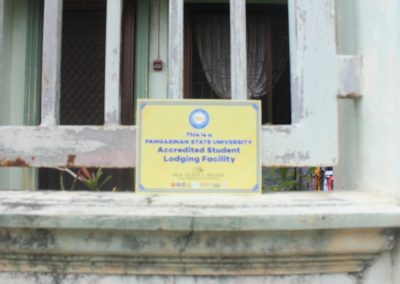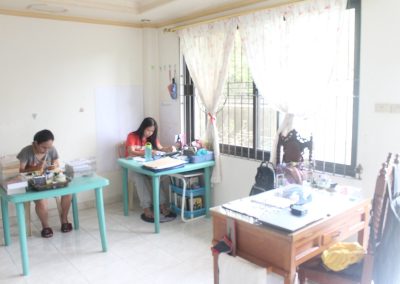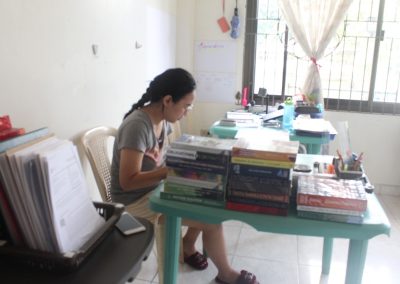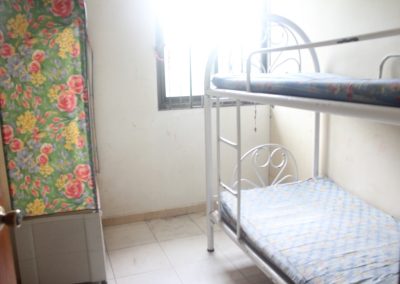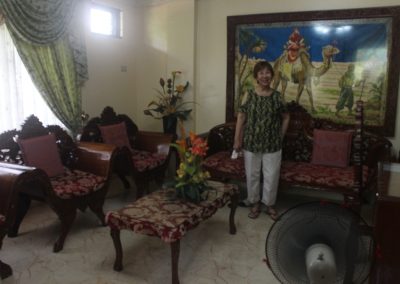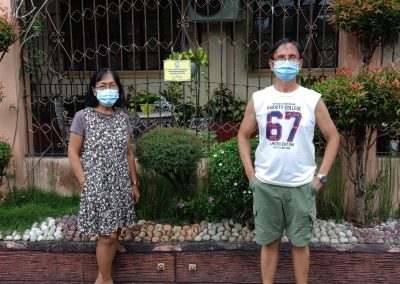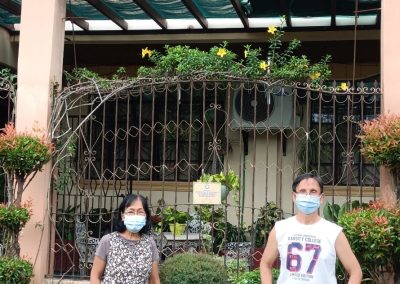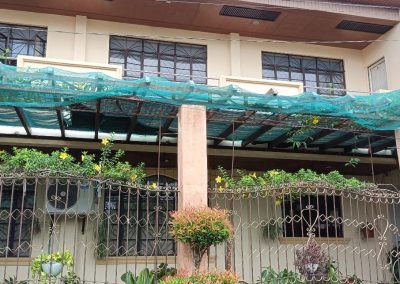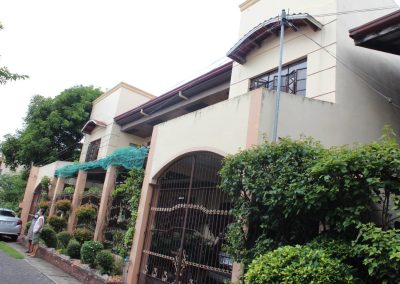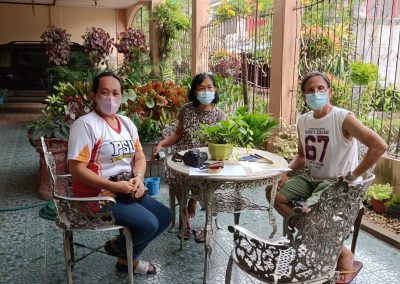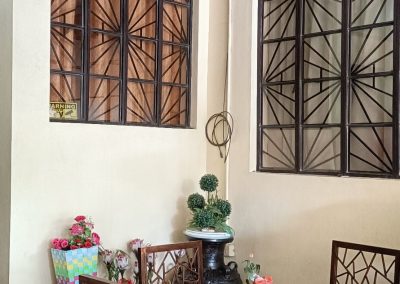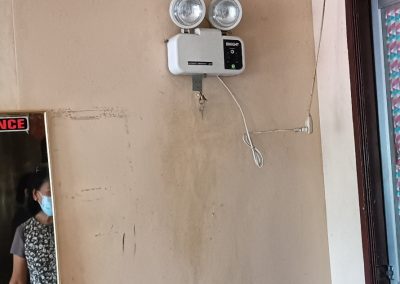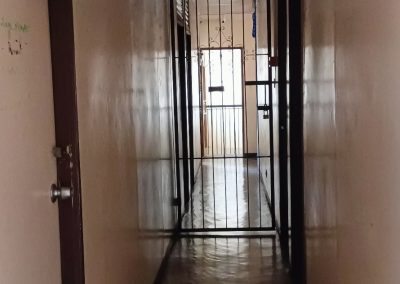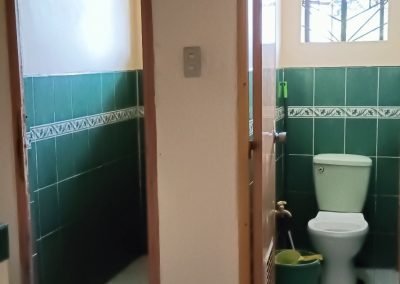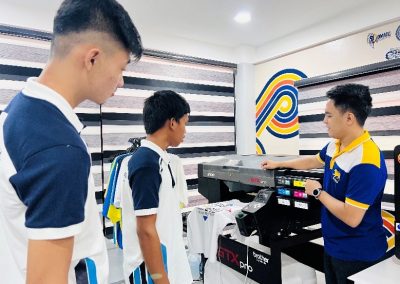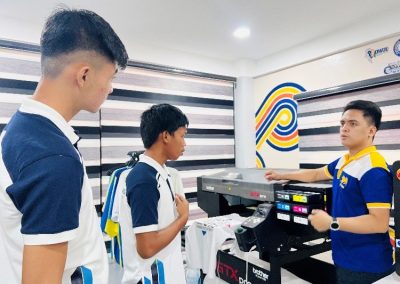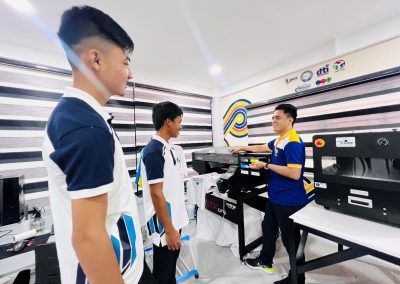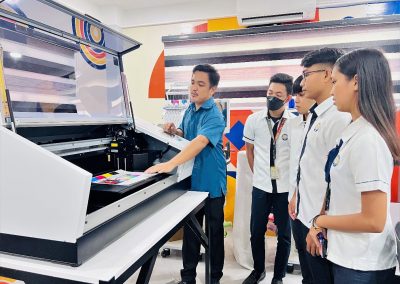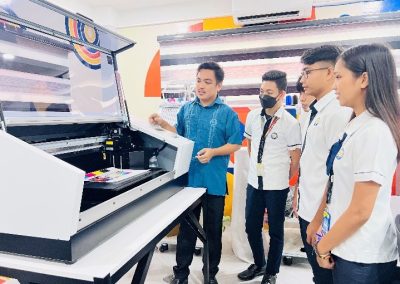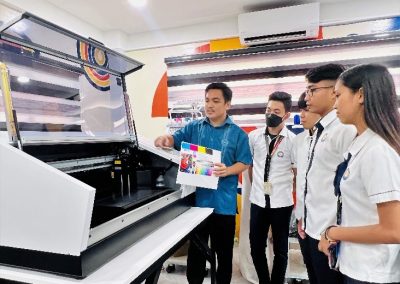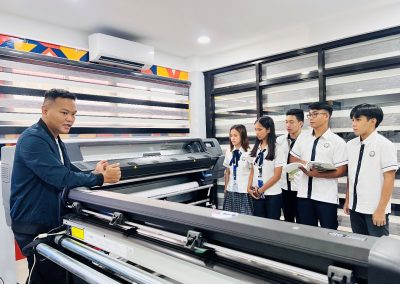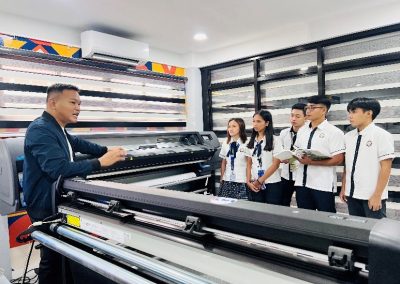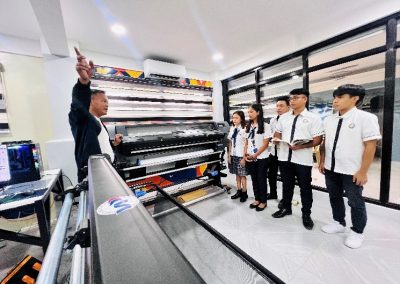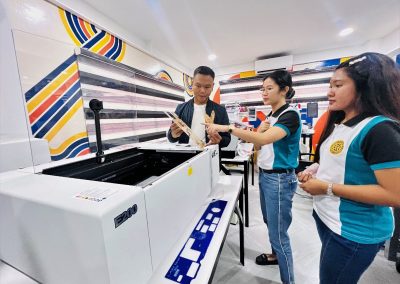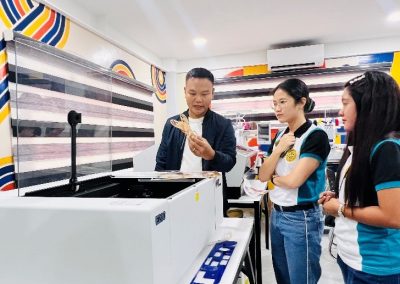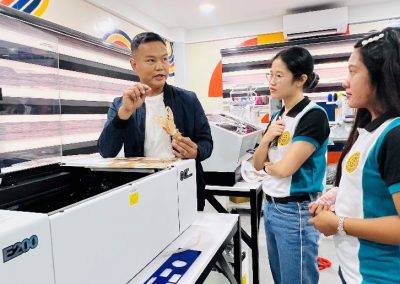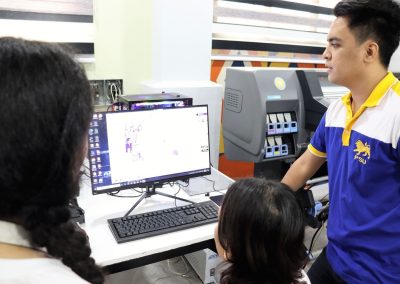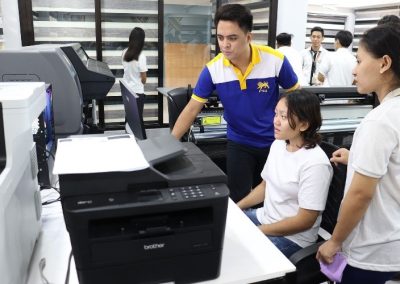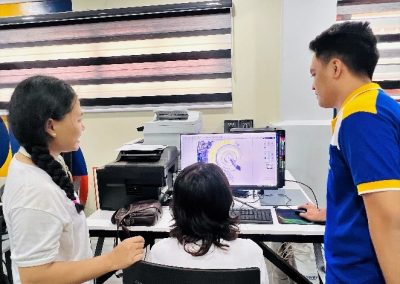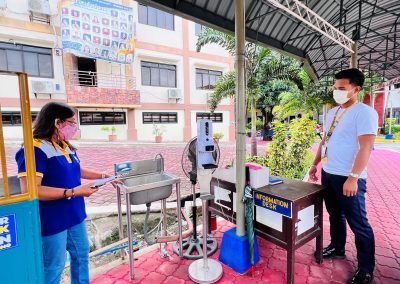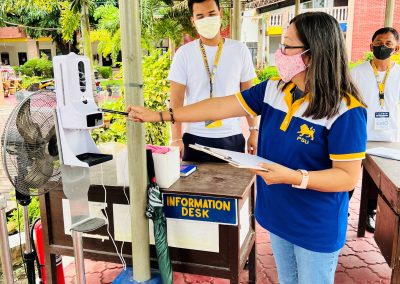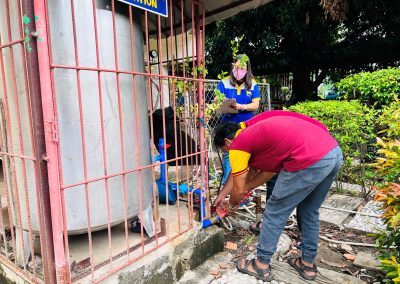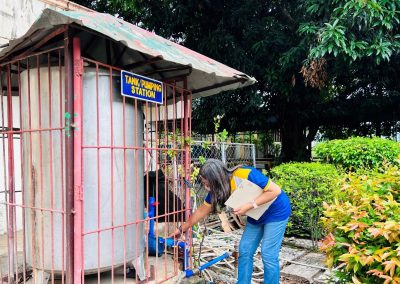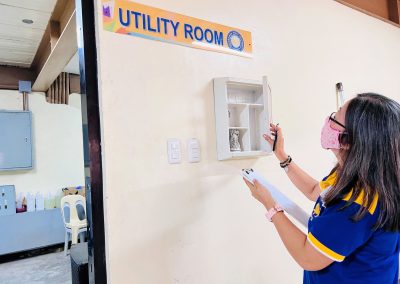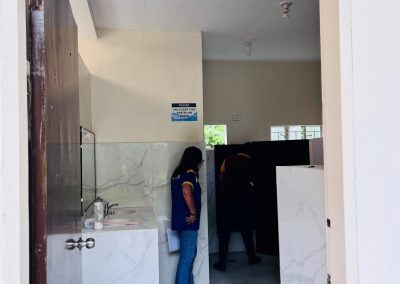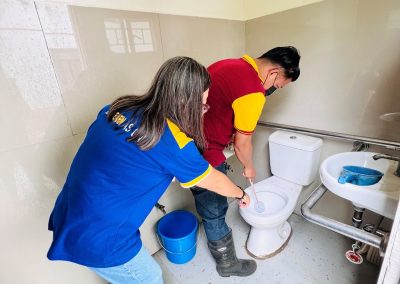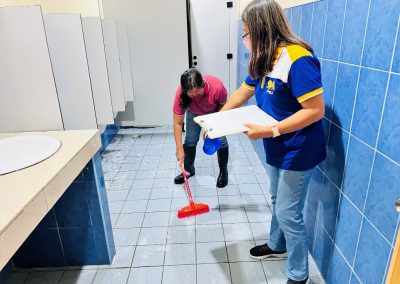CAFETERIA
School cafeterias encourage the development of healthy eating habits and diets. Relative, the cafeteria aims to provide students and personnel with high-quality, delicious, and nutritious meals, and it is open to all stakeholders on campus. It also provides convenience on the part of students, educators, and stakeholders as they do not need a set amount of time to go out and buy their food.
BOOKSTORE
The bookstore holds a large number of books that can be used by students on campus as additional reference materials. The bookstore sells a variety of necessary books in their subjects, allowing them to better understand their lessons and activities. This, on the other hand, helps students learn more.
SOCIAL ROOM
As part of the university’s overall transformation, the campus provides access to its social room, where students can socialize and interact with one another while continuing to study. This provides students with a space where they can express and distress themselves through the organization of school events and activities. Students can also socialize with each other.
AUDIO VISUAL ROOM
Student engagement is one of the most significant advantages of audiovisual classroom technology. Coming from a generation that has progressed through the school system using tablets, smartphones, and similar devices, audiovisual technology in the classroom is the best way to capture students’ attention. As a result, the audiovisual room is used to conduct sessions and classes where the use of audio-visual materials is expected to be extensive. It also prepares presentations with AV equipment.
SUPPORT CENTER
The campus support center provides a variety of assistance to students. Students may proceed to the campus’ support center to address their concerns regarding studies and other matters which may affect their academic journey. It is also through the center that students feel heard, seen, and amplified.
LIBRARY
The campus library provides students and educators with a diverse selection of books that can be used in their studies and lectures. It includes dictionaries, encyclopedias, atlases, gazetteers, yearbooks, handbooks, biographical dictionaries, and indexes as general references. Without a doubt, it also offers its customers general and professional book collections. Furthermore, it contains a collection of theses, feasibility studies, and dissertation papers written by undergraduate and graduate students as part of their degree requirements. The library also manages an electronic library where students and educators can virtually access books and other learning materials.
The campus library is open from 8:00 AM to 5:00 PM Monday through Friday.
CLINIC
The clinic is always available to help students and personnel with medical issues. Every day at the clinic, the campus nurse provides medical consultation and treatment. Medicines are also given away for free as long as supplies last.
Medical examinations of athletes, on the other hand, are performed prior to athletic events, and the medical staff also attends to emergencies that arise during sports competitions.
The campus clinic also provides dental services such as extractions and prophylaxis.
WASTE MANAGEMENT
Proper waste management is essential for maintaining the cleanliness of the campus. The administration prioritizes this for the well-being of its students and employees. As a result, PSU Urdaneta believes that it is critical for educational institutions to deal with waste management and participate in sustainable waste management. Thus, the campus employs a variety of waste management strategies.
DISABILITY RAMPS AND COMFORT ROOMS
Pangasinan State University-Urdaneta City Campus believes that it is critical to ensure that every area of the school is accessible to everyone in order to provide quality education to all students, regardless of mobility issues or disabilities. Individuals and senior citizens with mobility issues can easily and safely access various areas through wheelchair or disability ramps.
Students and educators, on the other hand, have access to comfort rooms, and each department and college has their own.
Students can also enjoy a physically stimulating journey by taking advantage of the school’s various sports facilities. While students can use such facilities during PE classes, athletes use them to practice and improve their athletic skills—a great way to prepare for when they leave campus and represent the university in various athletic competitions.
Furthermore, sports facilities are used as official venues for activities such as intramurals and sports meet on campus.
Students can also use the facilities of our partners thanks to a memorandum of understanding. The Memorandum of Agreement (MOA) serves as a legal document that describes the terms and details of the partnership agreement. This demonstrates PSU-Urdaneta’s unwavering commitment to providing the best services to its students and clients, as well as its pursuit of engaging with stakeholders and partners from communities and other interested parties.
DORMITORIES
Dormitory living is an essential part of the college experience. In order to provide a comfortable college experience, the campus also has its own dormitories for students, particularly those from outlying areas or outside the province. The aforementioned facility is not only a beneficial place for students, but it also allows financially disadvantaged students to obtain a quality place at a lower cost.
FABRICATION LABORATORY
FabLabs, or digital fabrication labs, were established to encourage individuals and businesses to convert their ideas into new products and prototypes by providing them with access to a variety of innovative digital manufacturing technologies. It suits the modern needs of related industries, such as tarpaulin and 3D printing, engraving, and the like. In partnership with the Department of Trade and Industry (DTI), the PSU-DTI FABLAB was established at Pangasinan State University, the first in northern Luzon to have a FABLAB, which aims to support local innovation and improve the competitiveness of micro, small and medium enterprises (MSMEs). This facility, located at Urdaneta City Campus, uses advanced and updated technology to create high-end products which contribute to the operations of the institution’s teachers, students, and stakeholders.
One of the equipment in FABLAB is the Direct to Garment (DTG) Printer, also known as digital apparel printing, this equipment could print customized textile and accessories. Engr. Ryndell Casem shows the PSU students how the equipment works.
UV printing is a form of digital printing that uses ultra-violet lights to dry or cure ink as it is printed. This equipment could print unique designs, images, text and even textures directly onto a vast range of materials or products such as plaque, souvenirs, or display. During the demonstration, Engr. Rex Basuel shows the PSU students how the equipment works.
Latex Technology, this equipment could print on virtually any substrate to create signage, vehicle wraps, décor, stickers, posters and more. Arch. Jumar Balicao demonstrates how to use the Latex Printer to PSU students.
Arch. Jumar Balicao shows the sample products of UV Printing and how it is done to PSU students.
Engr. Ryndell Casem shows how to create a design using design software that will be printed using the latex printer.
UTILITY
Eufrocina L. Abbruzzese, the OIC-Administrative Officer, inspects the maintenance of various comfort rooms in the campus, which are strategically situated in each building or area. The working force of administrative aides are working hand in hand to ensure the cleanliness of these facilities.
With the supervision of the administrative officer, utility workers are given schedules in cleaning the facilities in the campus. Comfort rooms are thoroughly cleaned for campus personnel and stakeholders. Floors are regularly mopped to avoid being slippery or bathroom flooding.
A medical box, placed outside the utility room, is consistently inspected by the administrative officer to guarantee its efficiency for use.
The tank pumping station is also checked by the administrative officer, making sure that all buildings and offices can receive water for personal use. In the event of pump malfunction, the utility workers are present to fix problems. They are practically trained in performing troubleshooting.
An automated alcohol dispenser is placed at the information desk for student and personnel disinfection upon entry. As another choice of the stakeholder, a portable sink is placed for washing of hands.

